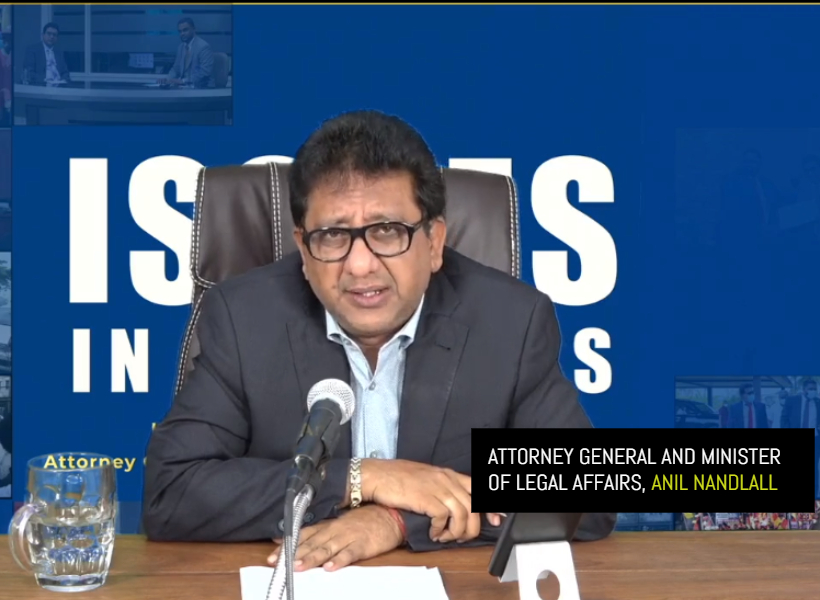The ink on the electronic identification card contract between the Guyana government and a German company has dried, and any termination of the multibillion-dollar arrangement could expose the administration to legal turmoil and a muddied international image. This warning comes from the country’s Attorney General and Legal Affairs Minister, Anil Nandlall.
LEGAL BACKLASH
During his most recent “Issues in the News” programme, the government’s chief legal advisor lamented the legal consequences the country could face if it were to cave to calls to terminate the sole-sourced US$35.4M contract with Veridos.
The most recent call was made by former Auditor General, Anand Goolsarran, in his Stabroek News column, “Accountability Watch.” The chartered accountant’s pleas come on the heels of the Guyana Human Rights Association (GHRA)’s outcry for cancellation over privacy concerns. Both “commentators,” the AG said, are yet to acknowledge the likelihood of lawsuits the administration and the country could be slapped with if the contract is unilaterally cancelled.
“The contract has been signed, and therefore, it cannot be unilaterally cancelled. That would amount to the [Guyana] government breaching the contract and that would attract liabilities and would put the government in a terrible position,” Nandlall said.
MUDDIED INTERNATIONAL IMAGE
The AG noted that while citizens have a right to publicly express their displeasure with government action, they must be accurate in their assessments and, more importantly, be responsible. He said that by calling for a cancellation of the contract, those persons are advocating for a law-abiding government to violate the sanctity of a binding document. He hastened to note the debilitating effects Guyana’s image could face if the agreement is cancelled.
“So, these calls will not only put the country in legal trouble but will also have an impact on the international standing of the government. It would impose an image upon the government as one with a track record of breaching contracts it enters into with international and local trading partners. The country’s reputation could suffer internationally,” he said.
NATIONAL SECURITY
The AG also defended the government’s decision to sole source the contract, noting that no procurement laws were breached. In fact, he said that the law provides for such a method of procurement if the items being sourced relate to national security.
“It is my respectful view and the view of the government, that those conditionalities were met in this instance…This card will contain information of national importance peculiar to each citizen, and these are matters of sufficient importance to be considered matters of national security,” he said.
LEGISLATION
Acknowledging that Guyana lacks both the administrative and legislative framework to buttress the implementation of these cards, the AG noted that ample time was tailored into the contract to set these measures in place before distribution.
He said, “If one reads the contract they would see that it is spread out over a period of time – from the signing to the issuance of the card. Now, in that period, we have to build an administrative machinery in relation to how the card is going to be issued and managed.”
Nandlall also asserted that legislation has to be implemented, not only to protect the data on the card but also to: regulate how the card will be issued and by whom, what will qualify a person to be issued with the card, and how agencies within Guyana are to be bound by that card. “So, all matters in relation to that card will be subject to legislation. That legislation is being worked upon,” the AG concluded.













